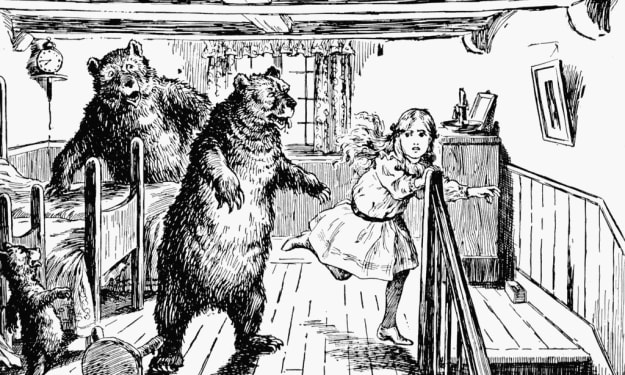Unveiling Hidden Horrors
A Journey Through Untold History

History unfurls like a gripping narrative, weaving together moments of triumph and tragedy. Yet, within its intricate tapestry lie the chilling echoes of the top 20 unsettling historical truths, often overlooked in educational curricula. These facts, veiled in shadow and rarely acknowledged, paint a stark picture of humanity's darker chapters – from obscured massacres to clandestine conspiracies. Let us embark on a journey through these unsettling historical revelations that challenge our understanding of the human condition and reshape our perception of the world.
1. The Dancing Plague (1518):
In the serene town of Strasbourg in 1518, a perplexing phenomenon emerged – the Dancing Plague. It began with Madame Tropa's inexplicable dance in the streets, triggering a contagious frenzy. Despite attempts to quell it, the dancing persisted until authorities resorted to extreme measures. Similar outbreaks occurred elsewhere, with theories suggesting mass food poisoning as the culprit.
2. Cleopatra's True Heritage:
Contrary to popular belief, Cleopatra II, the last sovereign of ancient Egypt, hailed from Macedonian Greek descent. Embracing Egyptian culture, she embodied a unique fusion of Greek and Egyptian influences, challenging conventional notions of identity.
3. The Partition of India and Pakistan (1947):
The tumultuous partition of British India in 1947 spawned a violent mass exodus along religious lines, resulting in staggering casualties and displacement. Rushed and poorly executed, this decision left an indelible scar on the subcontinent.
4. Over 600 Assassination Attempts on Fidel Castro:
Fidel Castro thwarted over 600 assassination plots, showcasing his resilience against covert operations and elaborate schemes by various intelligence agencies.
5. Napoleon Bonaparte's Height Misconception:
Napoleon Bonaparte's perceived short stature stemmed from a misunderstanding of French measurements. In reality, he stood approximately 5'7", above the average height of men in France during his time.
6. George Washington's Dental Struggles:
George Washington's battle with dental issues is often overshadowed by his presidential legacy. Contrary to popular belief, his dentures were crafted from a blend of materials, including hippo bone and ivory.
7. Government Poisoning of Alcohol (1926):
During Prohibition in 1926, the U.S. government's attempt to deter alcohol consumption through poisoning resulted in unintended fatalities, highlighting the perils of misguided policies.
8. The Misinterpreted Symbolism of the Statue of Liberty:
Initially representing Enlightenment ideals and American sovereignty, the Statue of Liberty evolved into a beacon of hope for immigrants, immortalized by Emma Lazarus's poem "The New Colossus."
9. The Trail of Tears (1830s):
President Andrew Jackson's Indian Removal Act in the 1830s led to the forced displacement of Native American nations, resulting in widespread suffering and loss of life.
10. Mount Rushmore's Hidden Heritage:
Mount Rushmore's transformation from a sacred site for the Lakota Sioux tribe to a symbol of American presidential glory underscores the complexities of national monuments.
11. The Library of Alexandria's Demise:
The Library of Alexandria, a bastion of knowledge, met its tragic end during a conflict between Cleopatra and her brother, erasing countless invaluable works from history.
12. Ancient Roman Plumbing and Lead Poisoning:
Despite their advancements in plumbing, the Romans inadvertently exposed themselves to lead poisoning through the use of lead pipes.
13. Accidental Invention of the Microwave (1947):
Engineer Percy Spencer's accidental discovery of microwave heating properties revolutionized culinary technology, leading to the creation of the microwave oven.
14. Witch Trials in Europe (15th-18th century):
The witch trials of Europe, fueled by fear and superstition, resulted in the persecution of thousands, predominantly women.
15. The Harsh Realities of Pirate Life:
Contrary to romanticized portrayals, piracy was fraught with hardship and peril, with pirates facing disease, violence, and the constant threat of capture.
16. The Little Ice Age (133-1850):
Europe's Little Ice Age brought about extreme weather conditions, causing widespread famine, disease, and death.
17. The Great Emu War of Australia (1930s):
Australia's unconventional conflict against emus underscores the complexities of human-wildlife interactions.
18. Bengal Famine of 1943:
The man-made Bengal Famine of 1943, exacerbated by wartime policies, resulted in widespread starvation and loss of life.
19. Pope Gregory IX's Crusade Against Cats (13th century):
Pope Gregory IX's crusade against cats reflects the superstitions and misconceptions of the time, leading to dire consequences.
20. Evolution of the English Language:
The English language's evolution, shaped by historical events and cultural influences, reflects the dynamic nature of human communication.
In Conclusion:
These top 20 unsettling historical truths offer a glimpse into the darker recesses of human history, challenging our perceptions and illuminating the complexities of the past. Through exploration of these overlooked narratives, we deepen our understanding of the human experience and its enduring impact on the world.
About the Creator
Peter Kiruu
I Am very passionate about telling great stories, a Fine Artist, Poet and an Author.






Comments
There are no comments for this story
Be the first to respond and start the conversation.